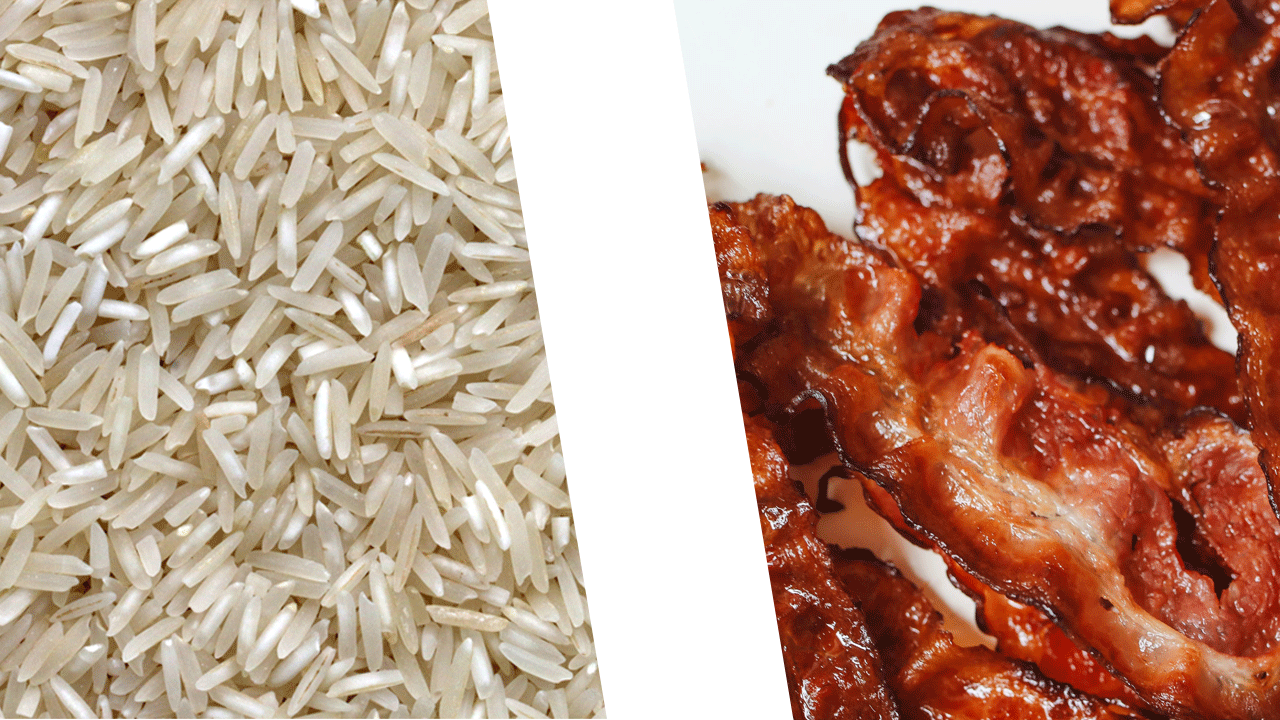Conceitos Básicos
The author highlights the importance of avoiding certain unhealthy foods for better health and provides alternatives to make informed choices.
Resumo
Many commonly perceived healthy foods are actually unhealthy, leading to potential confusion in dietary choices. The article emphasizes the need to be mindful of food selections and offers healthier alternatives. From white rice lacking nutrients to instant vegetable broth with hidden additives, the content sheds light on misleading food options. It also addresses issues with pre-packaged salads, refined flour products, sugary cereals, honey consumption, fruit juice drinks, protein bars, processed meats, and diet products. The overarching message is to opt for whole, unprocessed foods over convenient but nutritionally deficient options.
Reis und ACE-Saft: 10 Lebensmittel, die nicht so gesund sind wie du glaubst
Estatísticas
Öko-Test found traces of arsenic in rice products.
Instant vegetable broth contains high levels of salt and flavor enhancers.
Pre-packaged salads may harbor harmful bacteria due to processing methods.
White flour products lack essential nutrients and can be calorie-dense.
Breakfast cereals are often high in sugar and artificial additives.
Honey contains significant amounts of fructose and glucose.
ACE fruit juice drinks are loaded with added sugars.
Protein bars may contain excessive sugar substitutes and synthetic nutrients.
Processed meats preserved with nitrites can form carcinogenic compounds.
Light and diet products may have hidden additives to enhance taste.
Citações
"No matter how convenient pre-packaged salads are, they often come with environmental-harming plastic packaging."
"Choosing whole grains like brown rice over refined white rice ensures a higher nutrient intake."
"Consuming protein bars as a snack might not be as healthy as perceived due to their high sugar content."
Principais Insights Extraídos De
by Johanna Wehr... às utopia.de 03-01-2024
https://utopia.de/ratgeber/lebensmittel-die-ungesuender-sind-als-du-denkst_35114/
Perguntas Mais Profundas
How can individuals navigate through conflicting dietary advice from various sources?
Navigating conflicting dietary advice can be challenging, but there are some strategies individuals can use to make informed decisions. Firstly, it's essential to consider the source of the information. Registered dietitians, nutritionists, and reputable health organizations often provide reliable guidance based on scientific evidence. It's also helpful to look for consensus among multiple sources rather than relying on a single opinion.
Additionally, individuals should focus on whole foods and balanced meals rather than specific nutrients or food items. Prioritizing fruits, vegetables, whole grains, lean proteins, and healthy fats is generally a safe approach. Experimenting with different eating patterns like Mediterranean or plant-based diets can also offer valuable insights into what works best for individual health goals.
Lastly, listening to your body is crucial. Pay attention to how different foods make you feel physically and mentally. Keeping a food journal or working with a healthcare professional can help track reactions to certain foods and tailor dietary choices accordingly.
What are the potential drawbacks of consuming too many processed convenience foods?
Consuming an excessive amount of processed convenience foods comes with several potential drawbacks that can impact overall health and well-being. These products are often high in added sugars, unhealthy fats (such as trans fats), sodium, artificial additives (like preservatives and colorings), and low in essential nutrients like vitamins, minerals, fiber.
Regularly indulging in these items may lead to weight gain due to their high calorie content without providing satiety or nutritional value. Moreover, a diet rich in processed foods has been linked to an increased risk of chronic conditions such as obesity, heart disease,
type 2 diabetes,and certain cancers.
Furthermore,the environmental impact of producing these highly processed goods cannot be overlooked.They contribute significantlyto greenhouse gas emissions,waste generation,and water pollution.Supporting sustainable food practices by choosing minimally processed optionscan help mitigate these negative effectsand promote better personalhealth outcomes.
How can sustainable eating practices be integrated into everyday food choices?
Integrating sustainable eating practices into daily food choices is not only beneficial for personal health but also contributes positively towards environmental conservation.To achieve this goal,it's importantto prioritize locally sourced,in-season producewhenever possible.This reduces carbon footprint associated with transportationand supports local farmers.
Optingfor organicproducts helps minimize exposureto harmful chemicalswhile promoting soil fertilityand biodiversity.
Reducing meat consumptionor choosing grass-fed,pasture-raisedoptionscan lower greenhouse gas emissionsassociatedwith livestock production.Additionally,minimizingfood wasteby planning meals effectively,storing leftovers properly,and composting organic scrapsis keyto reducingenvironmental impact.
Embracingplant-based mealsonce or twicea week,cultivatingan edible gardenat home,supportingsustainablefood producers,and being mindfulof packaging materialsare all stepstowards incorporating sustainabilityinto everydayeating habits.These small changes collectivelycontribute towardsa healthier planetanda more resilientfood systemfor future generations.
0
